DRC: How soap-making is bursting the bubble of conflict
The World Food Programme and the Food and Agriculture Organisation empower communities with agricultural and trade skills
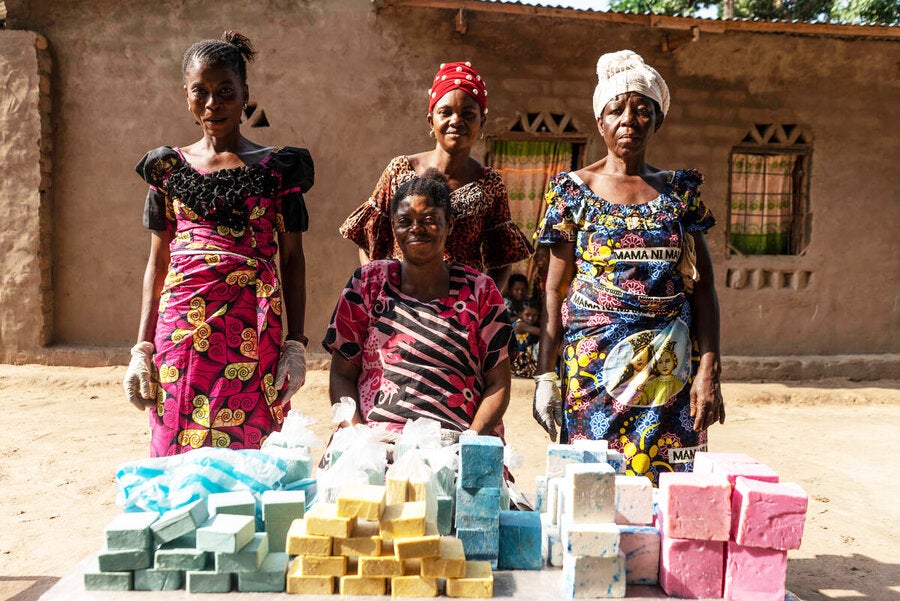
Your support helps us to tell the story
From reproductive rights to climate change to Big Tech, The Independent is on the ground when the story is developing. Whether it's investigating the financials of Elon Musk's pro-Trump PAC or producing our latest documentary, 'The A Word', which shines a light on the American women fighting for reproductive rights, we know how important it is to parse out the facts from the messaging.
At such a critical moment in US history, we need reporters on the ground. Your donation allows us to keep sending journalists to speak to both sides of the story.
The Independent is trusted by Americans across the entire political spectrum. And unlike many other quality news outlets, we choose not to lock Americans out of our reporting and analysis with paywalls. We believe quality journalism should be available to everyone, paid for by those who can afford it.
Your support makes all the difference.“Today I feel at peace because my life is moving in the right direction. I am paying for my children’s school fees, I’m building a new house, and my soap business is a success,” says Germaine. The 47-year-old mother of eight lives in Kabalo, Tanganyika province, in the Democratic Republic of Congo (DRC), a country of 105 million people of whom more than 27 million do not know where their next meal will come from.
Germaine, who lost her husband in 2018, farms and makes soap for a living as part of a “resilience” initiative run by two UN agencies – the Food and Agriculture Organisation (FAO) and the World Food Programme (WFP) – in Kabalo and Nyunzu territories in Tanganyika.
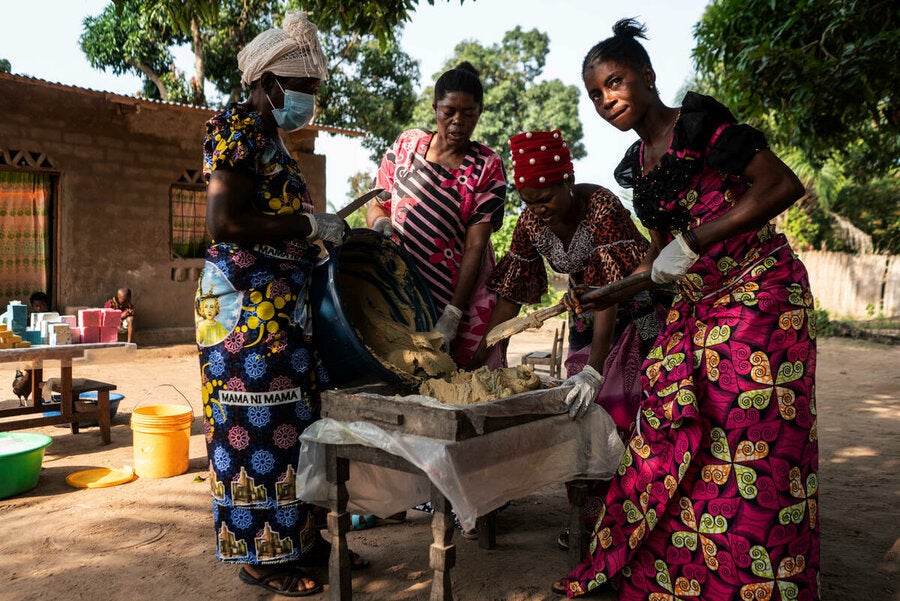
The organisations support 103,500 families, or around 517,500 people, in DRC’s Tanganyika, North and South Kivu, and North and South Ubangi provinces.
The resilience project targets 18,000 households with combined technical, economic and social interventions to revitalise local economies and livelihoods. This accounts for around 90,000 people, 40 percent of whom are women.
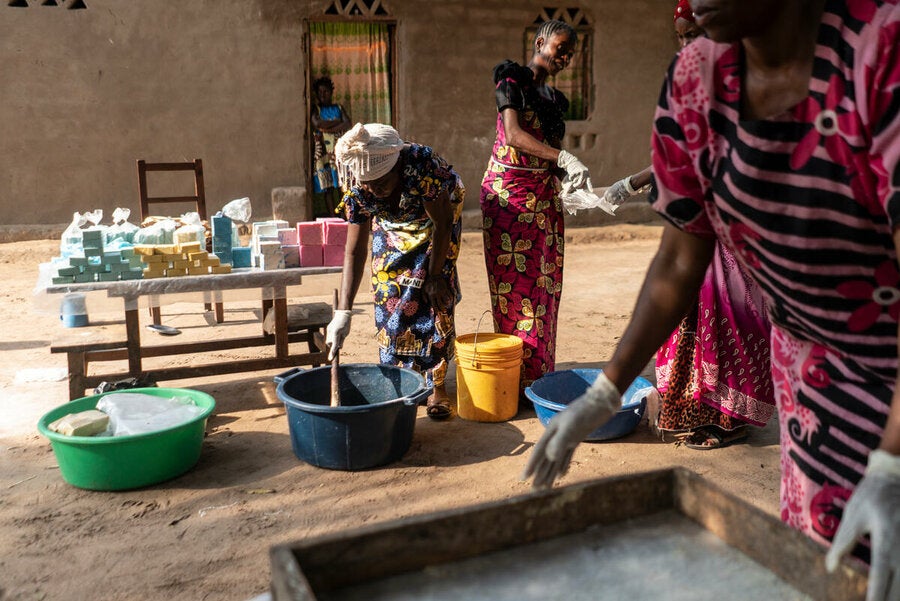
Training covers literacy, financial management, and – for women in particular – new income-generating activities.
The aim is to empower people with the skills that they need to prosper, in agriculture and business, working as a collective.
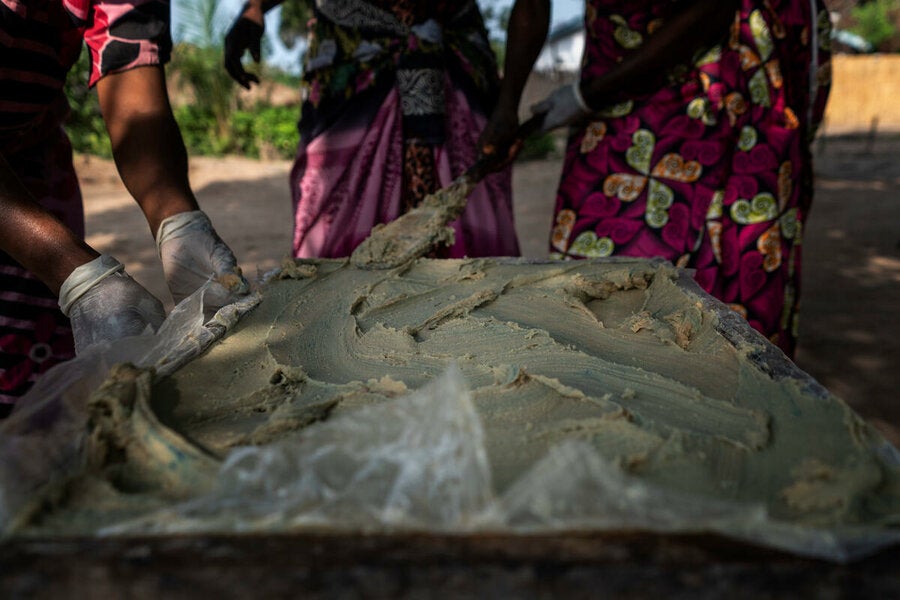
“What I most enjoy is soap-making,” says Germaine. “To buy the ingredients to make 2kg of soap, I spend approximately 30,000 CDF ($15); I normally sell it in two days for 50,000 CDF ($25), which makes me a profit of $10 each time.”
In 2020 alone, the project supported 800 women, graduates of its literacy training programme, to start activities such as soap-making, baking and catering. Training in business skills and accounting was also at hand, with a startup kit worth $100. Those who chose to focus on soap-making received seven 25kg bags of caustic soda, 3kg of dye, 3l of perfume, two tables, three densimeters (to measure the density of liquids), three boilers and three soap slicers.
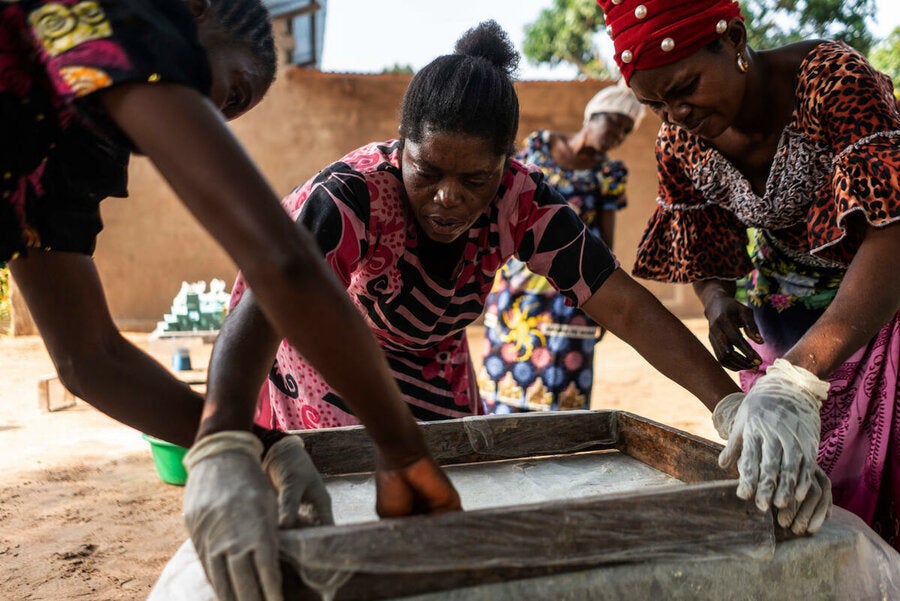
Germaine’s adult literacy and numeracy classes led to her becoming “the president of our savings group of five people”. She says: “My role is to do door-to-door visits to the members and collect money to buy soap ingredients. I also set dates for making the soap.” Today she runs a successful soap-making shop with four other women, and is able to provide food for her family and cover her children’s school fees.
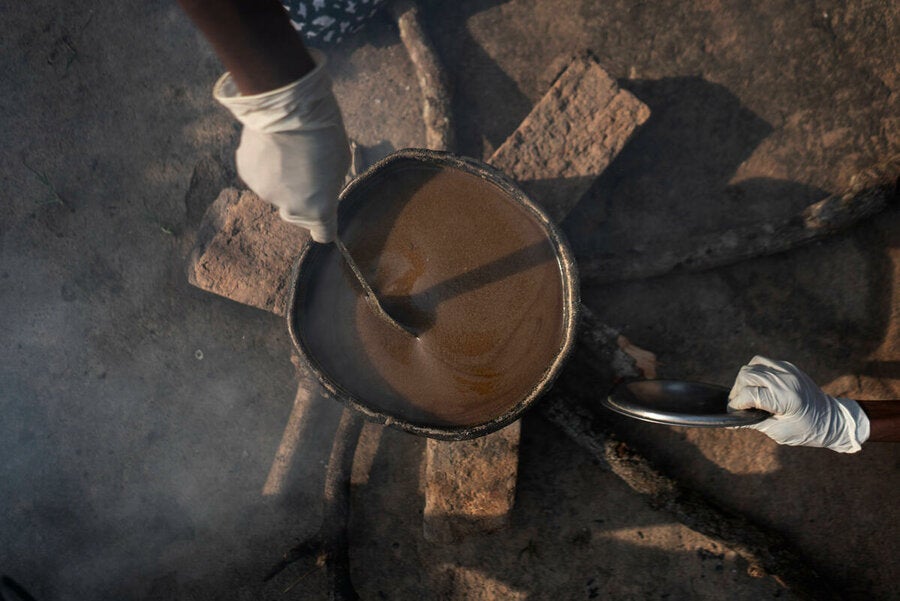
With her earnings, Germaine is also building a new house for her family – and planning to get a bigger plot of land, to increase her harvest of rice, peanuts and cassava.
She adds: “I hope that my children will get a better education than me and live a better life. I am convinced I can get there through my work.”
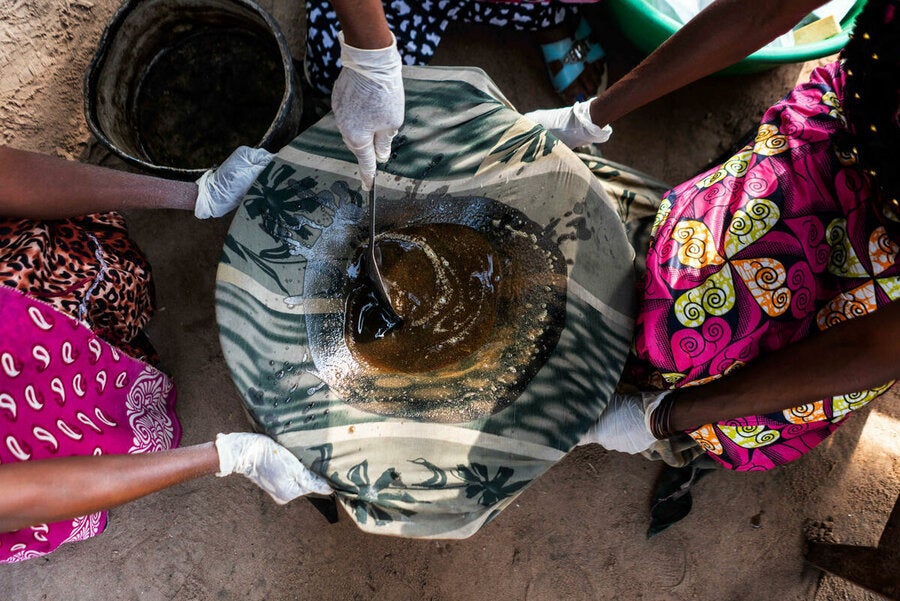
In addition to boosting food production and injecting more cash into the local market, the project has also helped promote peace and stability, as communities are now farming together and buying and selling from each other.
“We are working together, there is an abundance of food in our market and there’s money in Kabalo,” says Germaine.
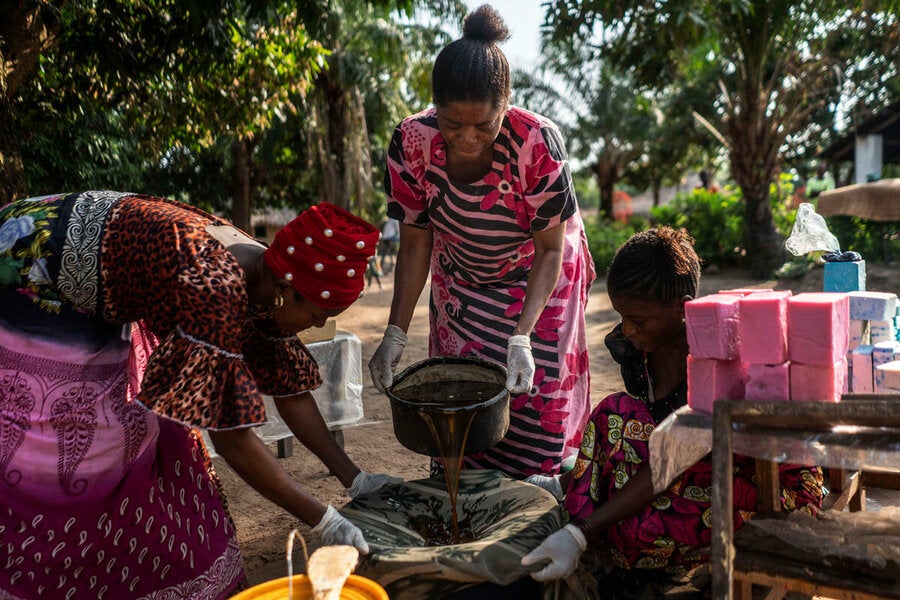
The resulting boost in agriculture means the territory supplies neighbouring communities with food, as well as products such as soap.
“Many of us are no longer waiting to get a salary at the end of each month, because we are making money throughout the month thanks to the skills we acquired,” says Germaine.
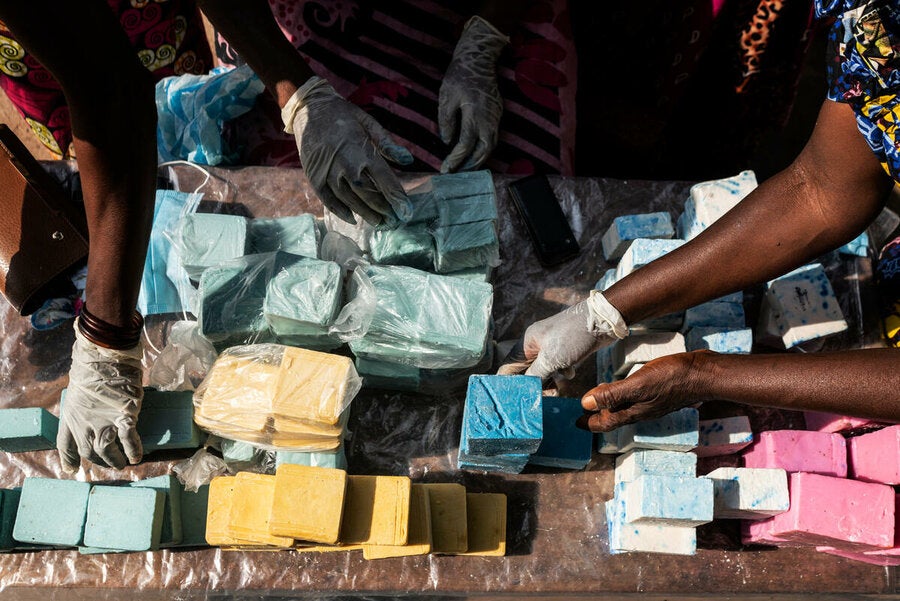
“Food is no longer scarce but rather diverse; you can go to the market and get anything you want. We no longer wait to get soap from other neighbouring areas such as Kongolo because we can make it ourselves.”
The resilience programme in DRC is backed by Germany, Sweden, Canada, Norway and Italy. Learn more about WFP’s work in DRC here
Join our commenting forum
Join thought-provoking conversations, follow other Independent readers and see their replies
Comments